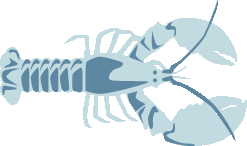Overview
The lobster trade (Retail, Restaurant, Ecommerce, Processor and Distributor) is backing away from purchasing and selling lobsters due to concerns with right whale entanglements and the recent Monterey Bay Red Listing of the North American lobster. Given the controversy over this issue at the fishery and government levels there are no immediate solutions that will prevent the lobster market from collapsing further, creating risk of additional long-term impacts over $100M in revenue per year. The lobster trade needs to take action to protect its consumer reputation and its market, but also needs to deploy an effective, real, industry-based data driven strategy to reduce risks of North Atlantic right whale (right whale) entanglements in the North Atlantic Ocean. With an overall goal of North Atlantic right whale species survival alongside thriving fishing communities and fisheries-dependent industries, the project’s activities involve the seafood industry to create a market incentive for fishing operation to fish in ways or areas that have been found to have lower risk of serious entanglement to right whales, based on robust datasets. This FIP will focus on the North Atlantic Lobster using Pot Traps.
The fleet pursuing this project is represented by the 6 proccessing companies and the docks that supply them. Specifically these processing companies and docks operate in Maine, New Hampshire and Massachussettes. By sharing the dock level finate harvest information down to vessel level we will be able to indentify the exact federal and state permitted vessel and dock.
The lobster trade (Retail, Restaurant, Ecommerce, Processor and Distributor) is backing away from purchasing and selling lobsters due to concerns with right whale entanglements and the recent Monterey Bay Red Listing of the North American lobster.
- Gain a minimum of 25% industry support (retail buyers, processors, and fishers) to ensure active and meaningful participation in efforts to lower entanglement risk of the NARW by June 2025.
- Establish third party traceability at particapting proccessing plants that links government reported harvest area, landing date and gear type to product sold by April 2025.
- Improve understanding of right whale entanglement risk associated with a minimum of 25M lbs of catch and products sold from the lobster fishery through spatial and temporal mapping and its use within traceability systems by November 2025.
- Utilize market influence to promote improved fishing practices and assist fishers with resources to deploy on-demand lobster gear by November 2026.
- Reduce North Atlantic right whale entanglement by incentivizing changes in siting and type of gear which will achieve a probable score of SG 80 by project end date (November 2026)
FIP at a Glance
| 4% | 89% | 7% |
This pie chart represents completed environmental actions. Non-completed environmental actions may contain completed sub-tasks that are not illustrated here. For more information on environmental action progress visit the Actions Progress tab.
- Complete
- Incomplete

